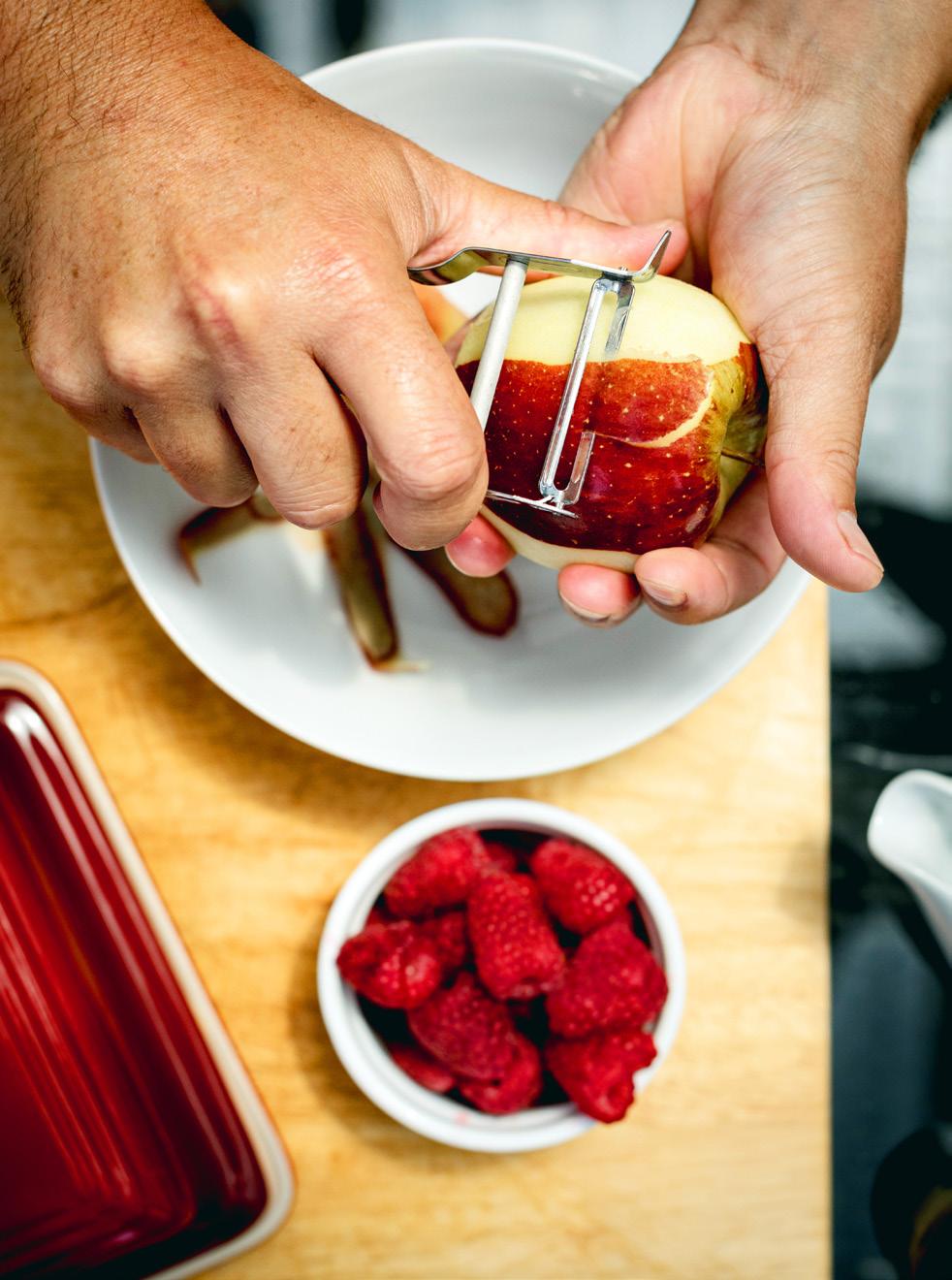
2 minute read
Poipoia te kākano
Poipoia te kākano, kia puawai
Nurture the seed and it will blossom
On Whenua Awa, our vineyard in the Awatere Valley, Marlborough, a special project is underway. Koekoeā talks to Mondo Kōpua, assistant vineyard manager.
‘We’ve been collecting seeds and cuttings from four different native plant species: kānuka, mānuka, Marlborough rock daisy and hebe hulkeana, also known as New Zealand lilac, which are common in the Wairau region’s Flaxbourne ecological district. The rock daisy and hebe hulkeana, in particular, are quite specific and unique to the South Marlborough region.
Collecting seeds and cuttings from these plants, growing them at a local nursery and then replanting them back in the vineyard aligns with the Wakatū value of kaitiakitanga. In a broad sense, it’s about protecting the land, being guardians of the land, water, airspace, the native plant species, and people.
It takes between 9 and 24 months to grow the plants, depending on the species and whether they use cuttings or seeds. Once the seedlings are ready, Mondo explains that they’ll bring them back into the vineyard and replant them in specific locations, including an area which they are aiming to only have native plant species in it. Kānuka is a hardy and useful tree. It’s a special plant that is only found in Aotearoa and has many surprising uses, from drinking it as a tea to treating burns. One of the most important roles kānuka plays is as a nursery crop, providing shade and shelter for native seedlings, particularly on exposed, dry hillsides. Mānuka is an iconic tree and the source of the highly prized mānuka honey. Famous for its natural medicinal properties, mānuka products have high antibacterial potency. The white star-shaped flowers are displayed for many months from spring, blanketing the hillsides like summer snow.
Marlborough rock daisy is a hardy, compact shrub that thrives in Marlborough’s hot, dry summers. Growing on the rocky terraces above the Awatere River, it has daisylike flowers, with white petals and yellow centre, which only bloom in winter. While common throughout Marlborough, outside of domestic gardens, this pretty shrub isn’t found anywhere else in the world.
New Zealand lilac (heliohebe hulkeana) is part of the hebe group of plants known to have medicinal properties. It has dainty, pale mauve flowers, and is rare in the wild. There is an
Mondo Kōpua (above) and mānuka capsules.

abundance of them growing on the Awatere River bluffs below the vineyard.
Follow the progress of the seedlings by signing up for regular updates via www.kono.co.nz/seedling










